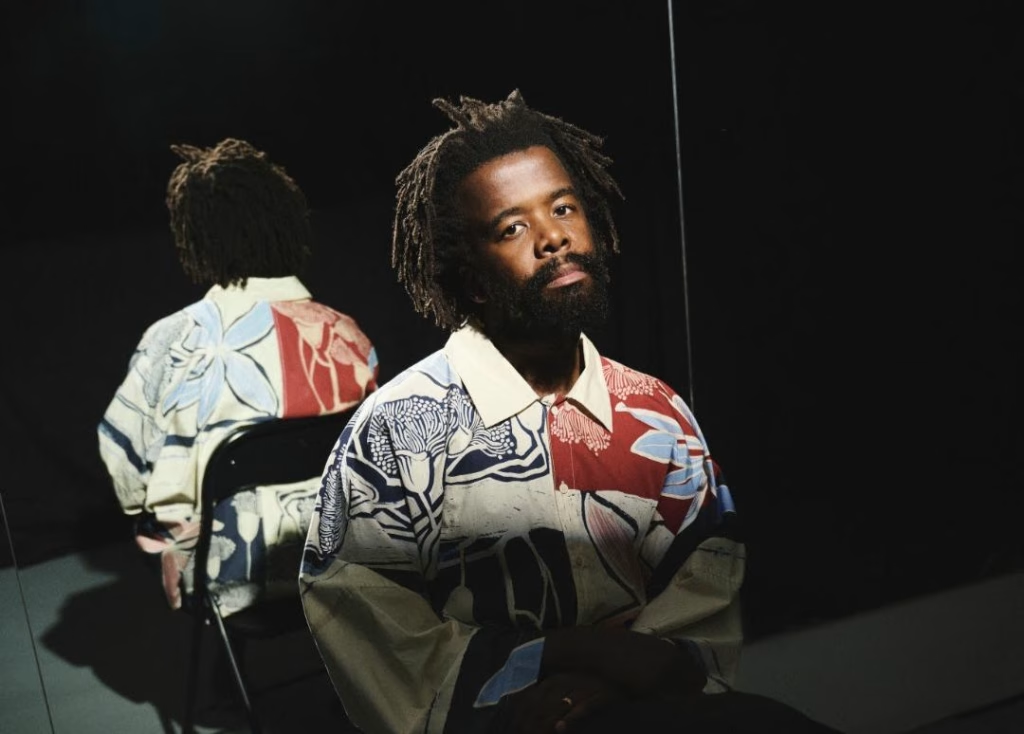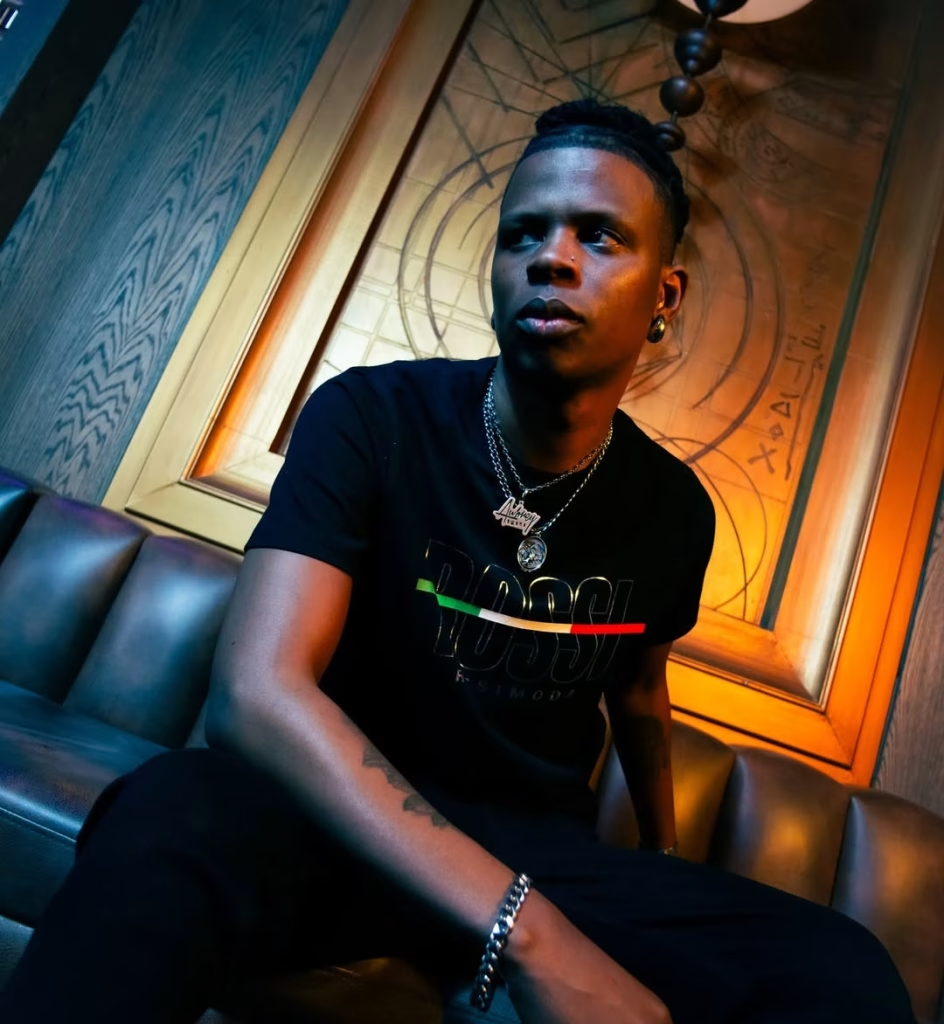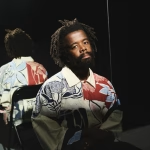Now Reading: Castle Milk Stout Hosts a Night of Preserving African Music, Heritage and Storytelling
-
01
Castle Milk Stout Hosts a Night of Preserving African Music, Heritage and Storytelling
Castle Milk Stout Hosts a Night of Preserving African Music, Heritage and Storytelling
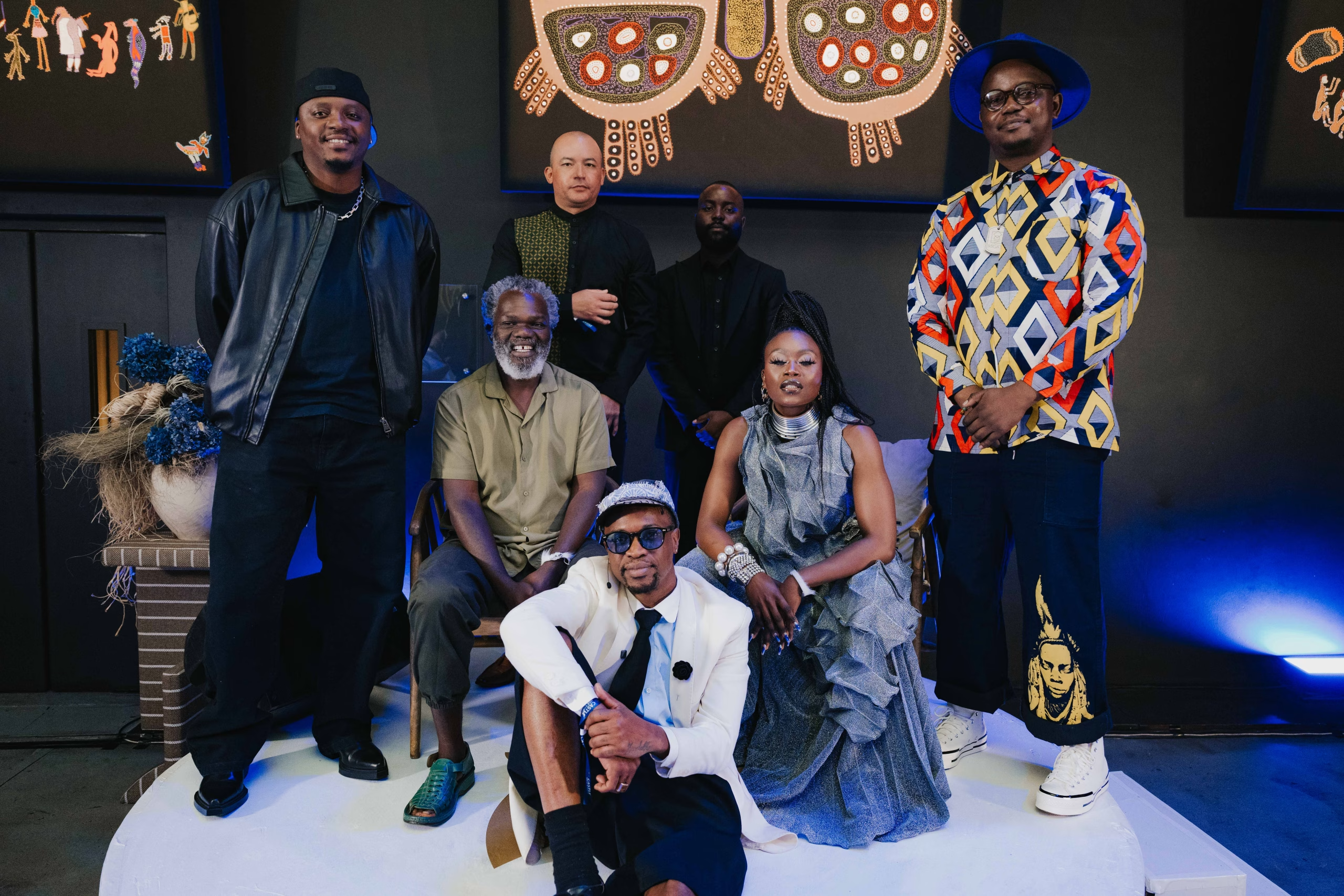
As the sun dipped behind Johannesburg’s skyline, the night air filled with a quiet sense of anticipation. Inside the softly lit venue, guests took their seats, unaware that what awaited them was not just an event, but an experience designed to reconnect them with something deeply familiar yet often forgotten. The hum of conversation slowly gave way to the rhythmic heartbeat of African drums as Castle Milk Stout unveiled Songs to Savour, a campaign devoted to preserving the melodies, chants and stories that form the soul of African heritage.
In many South African cities, traditional ceremonies have become rare sights. Elders lead while the youth often watch from the sidelines, unsure of the songs or rituals that once defined their communities. This generational silence is what Songs to Savour hopes to mend by inviting South Africans to rediscover these cultural songs through simple sing-alongs that bridge age, language and experience. It’s a way to learn, practise, and share music once reserved for weddings, initiations and family gatherings — all in an atmosphere of unity and pride.

Guiding the evening’s flow was MC Scoop Makhathini, whose effortless storytelling drew everyone in from the very start. He opened the night with warmth, painting a vivid picture of what the journey ahead would be a celebration of song, heritage and memory. After a welcoming dinner, he introduced the first artist of the evening, Zoë Modiga, whose brief conversation with Scoop Makhathini revealed a deep reverence for the essence of the night — a gathering not just to listen, but to remember. She spoke softly yet with conviction about how music, in its purest form, is a vessel for memory with a thread connecting us to those who came before. Her words felt like an invocation, setting the tone for what was to come. When she began to sing, her voice carried the weight of history, resonating through the room with both grace and power. Each note felt intentional, as if summoning generations past into the present moment.
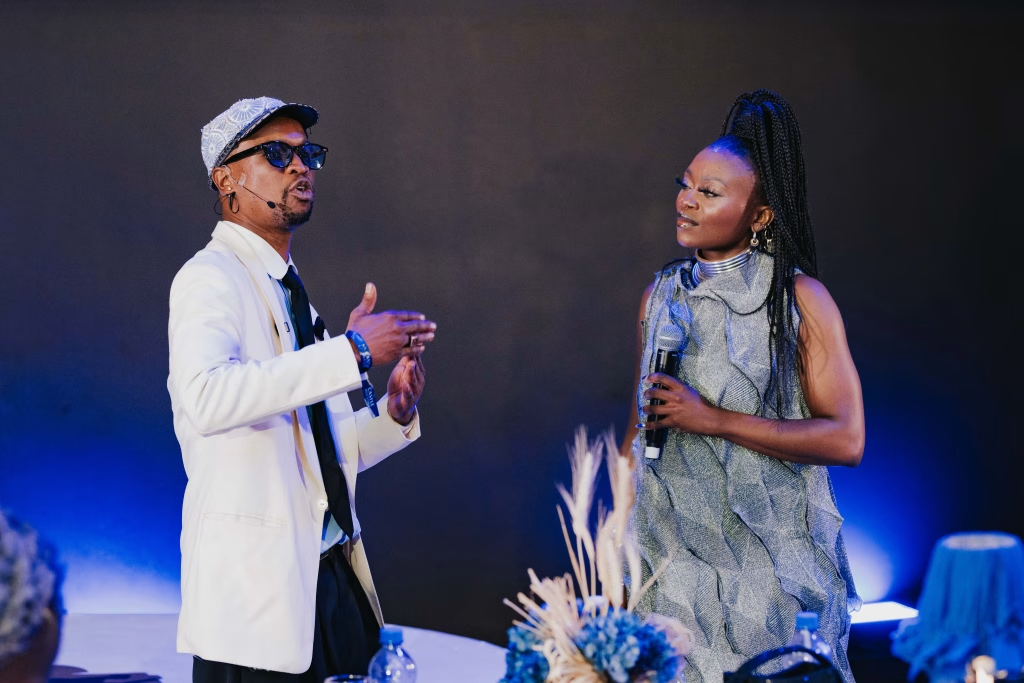
The stage then welcomed Mbuso Khoza, whose performance became a passage through time. His music took the audience on an indigenous journey, highlighting the essence of culture and the importance of preserving it for those yet to come. What began as performance soon transformed into participation with the crowd joining in, their voices merging in a shared rhythm that turned performance into communion.
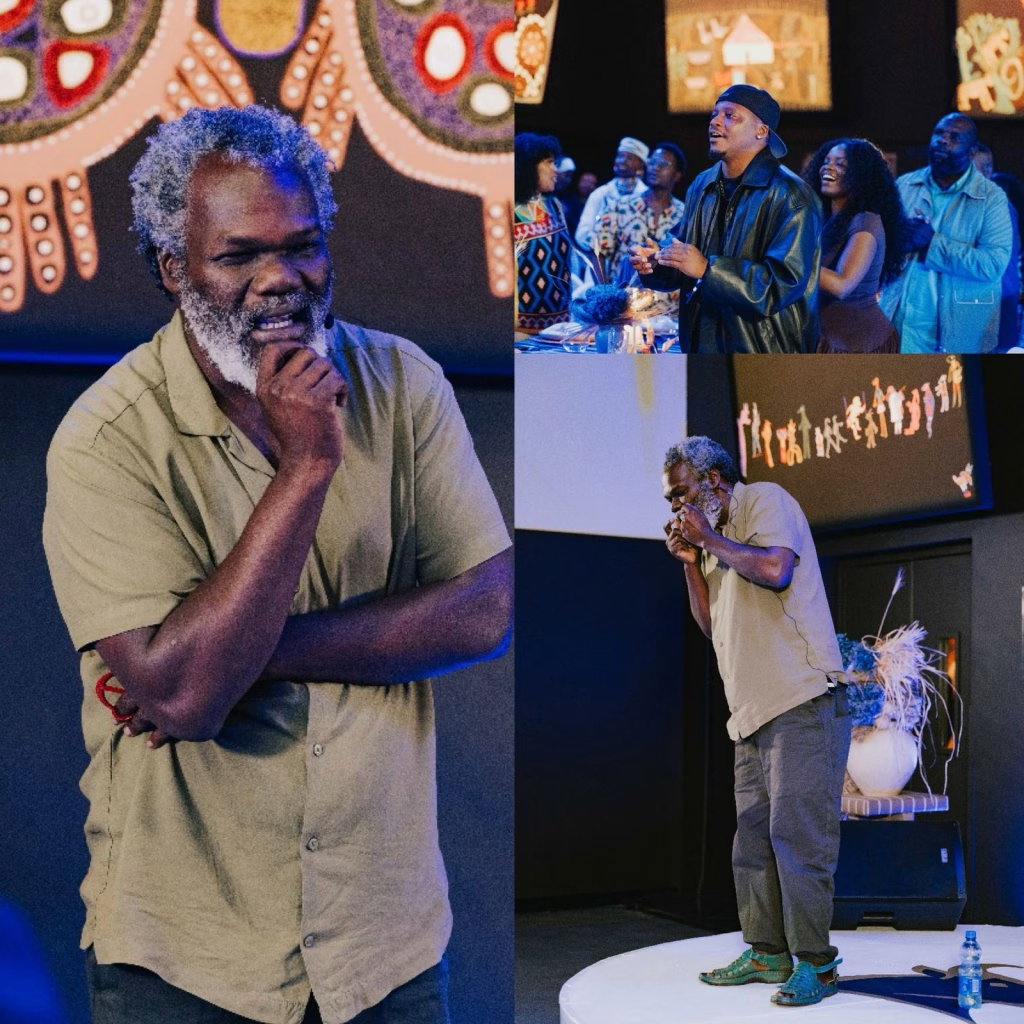
The night also extended beyond sound. Chef Zana Masombuka introduced a menu crafted to honour indigenous ingredients, merging traditional flavours with modern creativity. Each dish told a story, grounding the audience in the connection between food and culture.
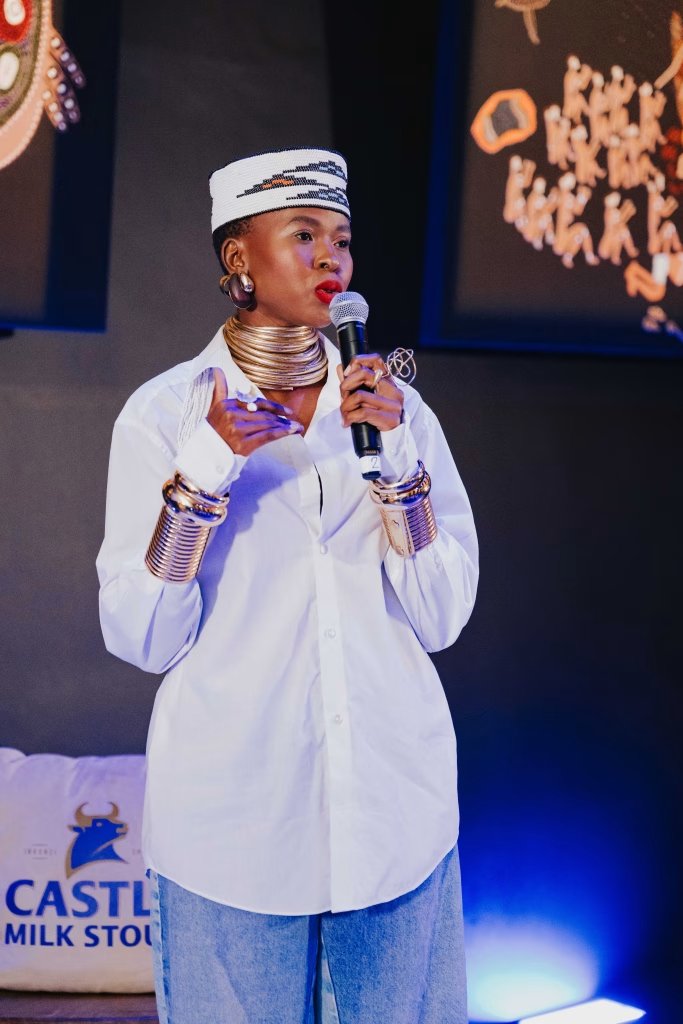
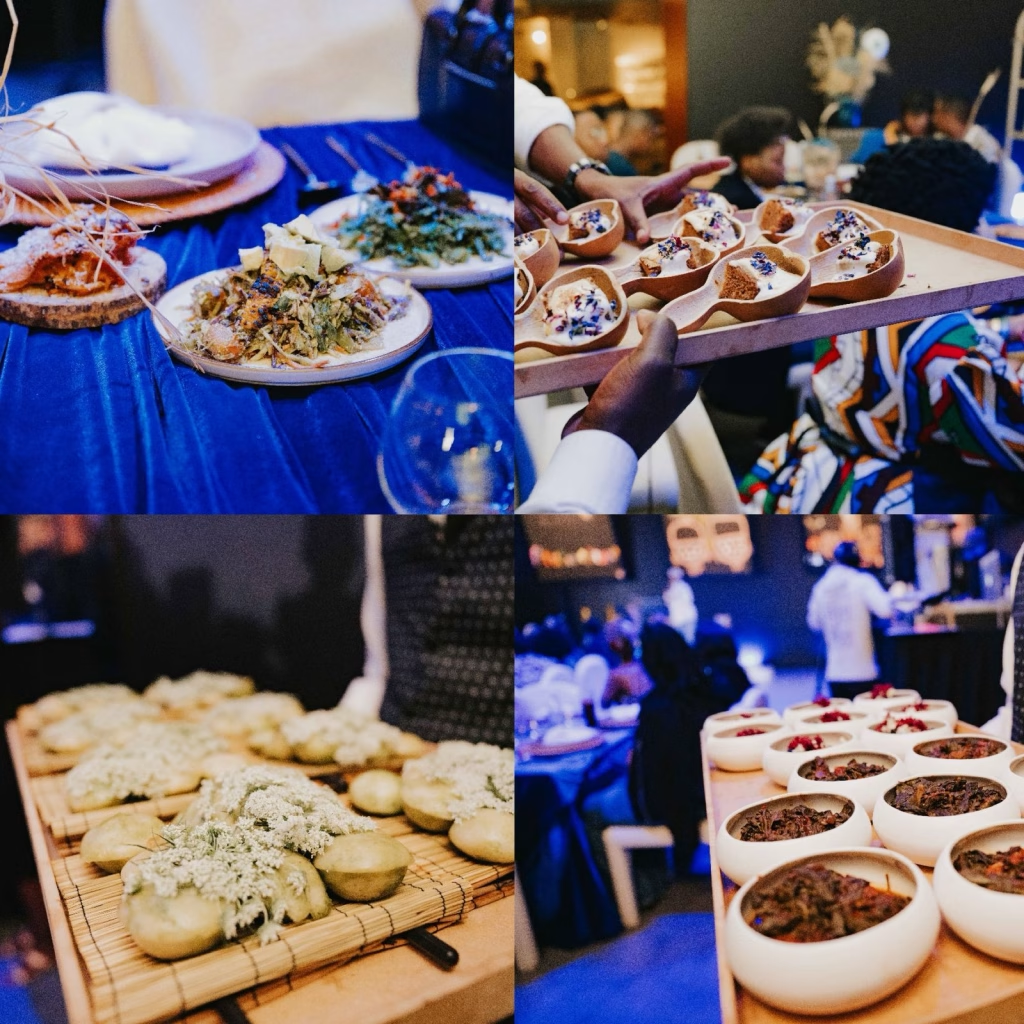
Though Dr. Nduduzo Makhathini couldn’t attend in person, his heartfelt message echoed the night’s theme — that culture is a living language carried through art, food and music reminding everyone that heritage is not something we inherit fully formed, but something we nurture with intention. He reflected on how every generation holds the responsibility of translation: to take the stories, melodies and teachings of the past and make them speak to the present. His words lingered with quiet power, echoing the night’s sentiment that culture survives only when it’s practised, not just remembered. It was a reminder that each song sung, each dish shared and each story retold is a continuation of that language — a way of ensuring that identity does not fade into silence but evolves through expression.
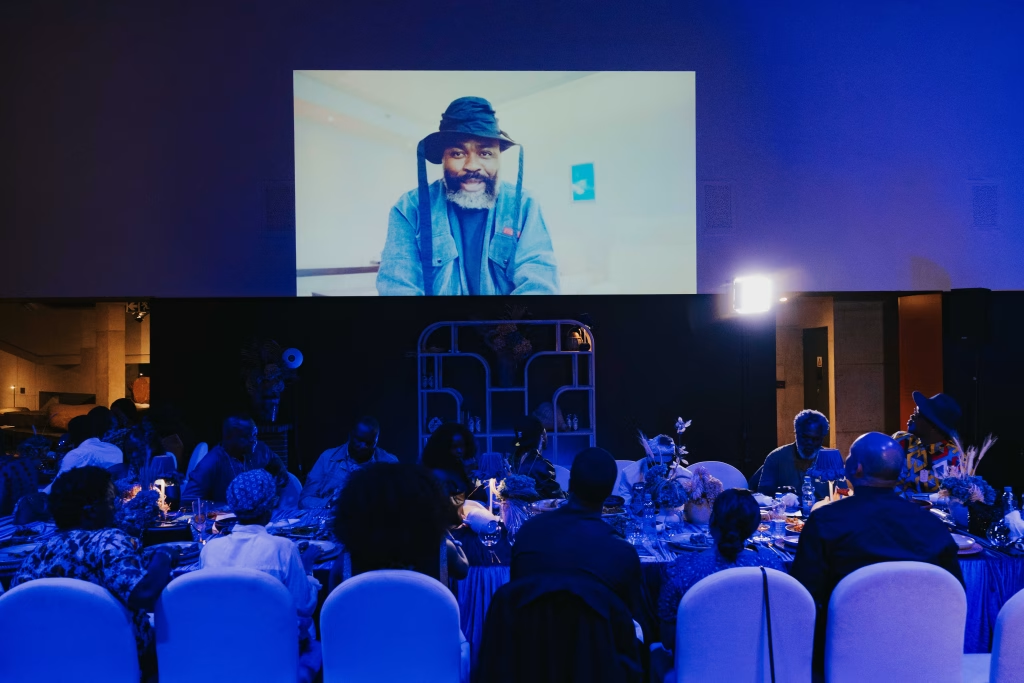
Scoop then introduced Yanga Chief, sparking one of the night’s most thought-provoking conversations with just a dialogue that stretched beyond music into identity, memory and modern expression. With the same charisma that carried him through the evening, Scoop guided the audience into a discussion about the meeting point between Hip-Hop and heritage with two worlds often seen as separate yet deeply intertwined in the South African story.

Yanga spoke about how igwijo, the traditional chants once echoed by warriors and sung at gatherings, continue to find new life in Hip-Hop. He described how these call-and-response chants have become a symbol of unity and resilience, grounding modern music in something far greater than rhythm and in history itself. The audience listened intently as he reflected on how igwijo has shaped his creative process, how each chant holds the spirit of a people who have always expressed their strength through sound. It was a reminder that Hip-Hop, much like traditional music, is rooted in storytelling and a form of cultural resistance, memory as well as pride.
As the conversation flowed, Scoop guided the room into the next chapter of the night with the introduction of Culoe De Song. The producer shared a different yet equally powerful perspective — one steeped in the spirituality of sound. He spoke about how his name, his music and his creative energy all stem from ancestral influence. For him, every rhythm carries intention, every beat a reflection of lineage. His words painted a portrait of music as more than entertainment — as a form of healing and connection, a language that continues to bridge the ancient and the modern.
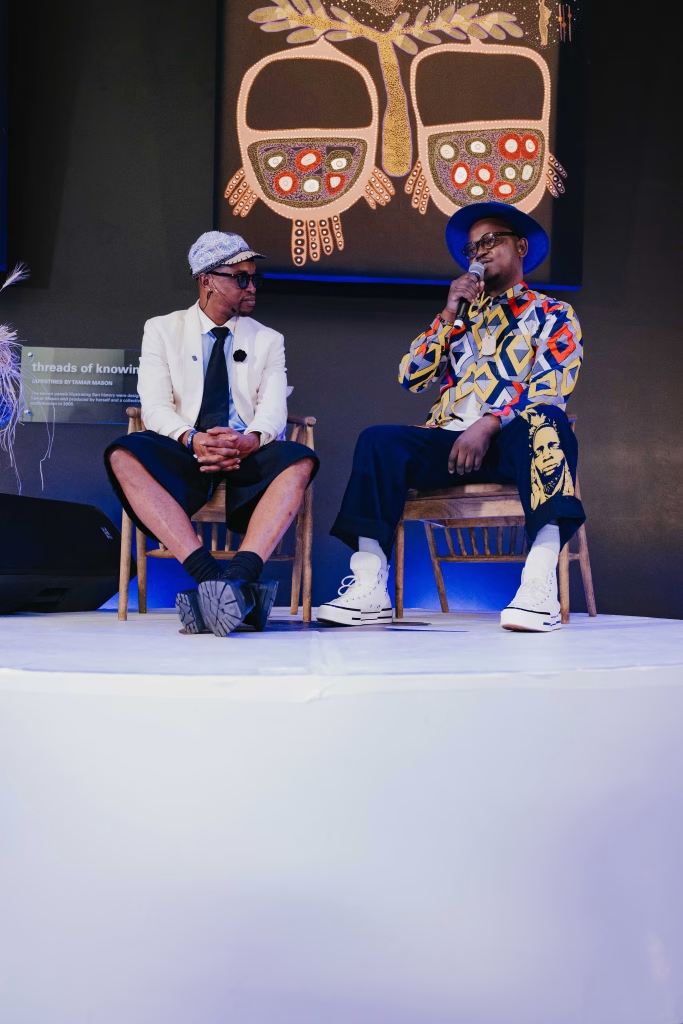
By the end of the evening, Songs to Savour had transformed into something tangible with an experience that reminded everyone present of the songs that once guided families through life’s milestones. In that space, surrounded by rhythm, story and taste, it became clear: when people sing together, they don’t just preserve history, but they bring it back to life.


